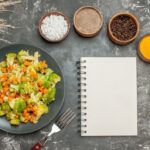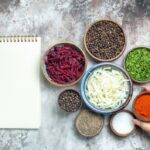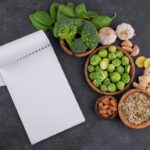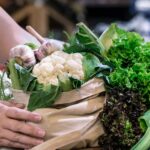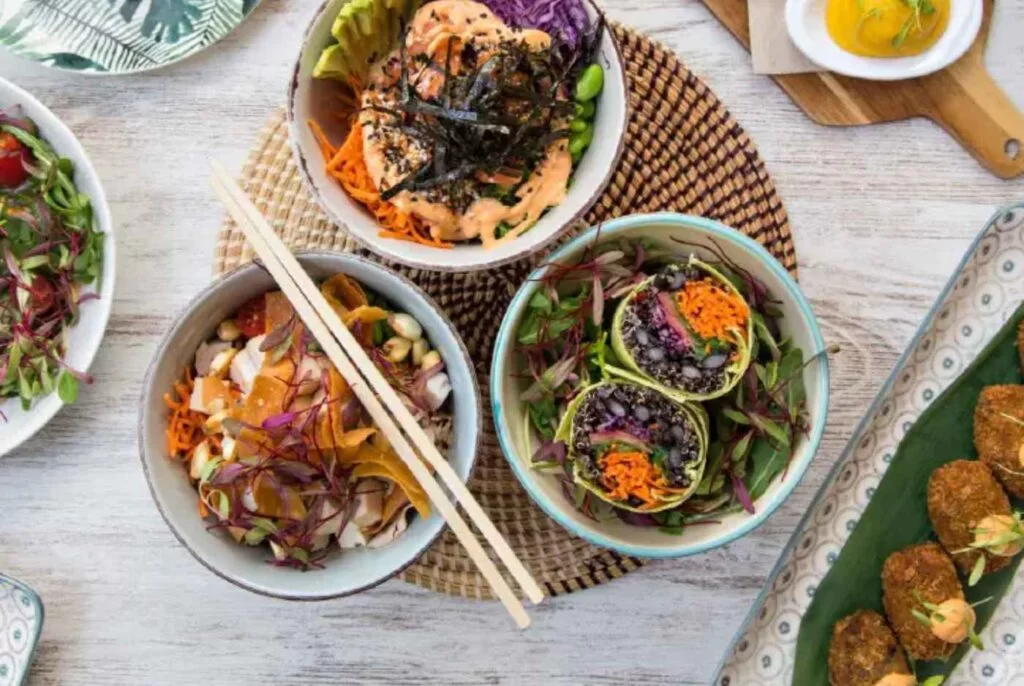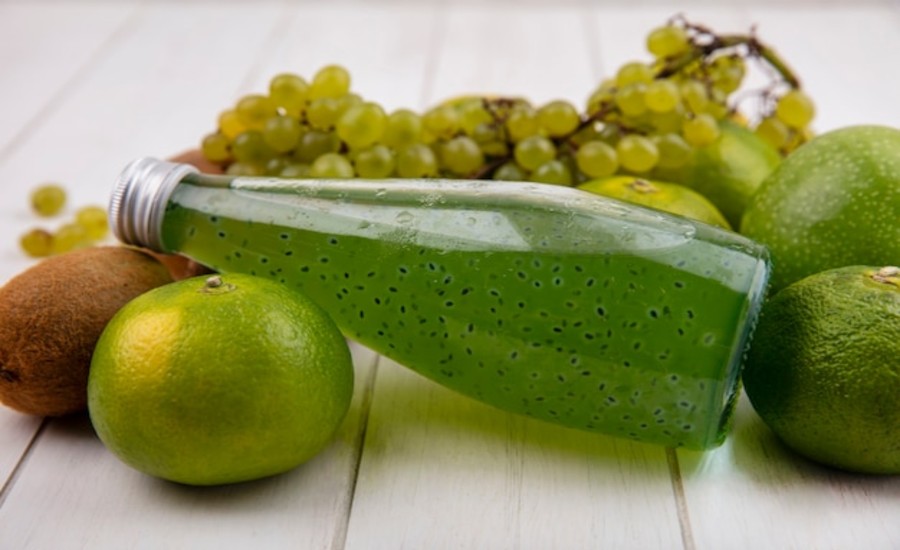In a world of fluctuating economies and growing awareness about our food systems, the ability to cook nourishing meals affordably is more than just helpful – it’s a powerful life skill. Applying this skill to a vegan lifestyle demystifies the misconception that compassionate eating is expensive, making it sustainable and accessible for everyone. This guide focuses on developing the skill of vegan cooking on a budget.
We’ll move beyond just cheap recipes to explore the necessary nutritional knowledge, the ethical mindset of resourcefulness, the environmental wisdom behind ingredient choices, and the practical kitchen techniques needed to master affordable plant-based eating, with relevance for cooks here in Vadodara and across India.
Mastering Vegan Cooking on a Budget: A Lifestyle Skill
- Identifying Nutrient-Dense Staples: Develop the skill of recognizing nutritional powerhouses that are typically low-cost, especially in India:
- Legumes (Dal, Chana, Rajma, Lobia etc.): Unbeatable sources of plant-based protein, fiber, iron, zinc, and folate at minimal cost. Learn the different types and their cooking properties.
- Whole Grains & Millets: Rice (brown offers more fiber), whole wheat atta (for roti/chapati), and critically, local millets like bajra (pearl millet), jowar (sorghum), and ragi (finger millet) common in Gujarat/Rajasthan provide complex carbs, fiber, and minerals very affordably.
- Seasonal Vegetables & Fruits: Learn to identify and use vegetables and fruits when they are in season and cheapest at local markets (mandis) in Vadodara. Potatoes (aloo), onions (pyaz), tomatoes (tamatar), carrots (gajar), cabbage (patta gobhi), gourds (lauki, turai), okra (bhindi), spinach (palak), fenugreek (methi) are often budget-friendly staples depending on the season.
- Legumes (Dal, Chana, Rajma, Lobia etc.): Unbeatable sources of plant-based protein, fiber, iron, zinc, and folate at minimal cost. Learn the different types and their cooking properties.
- Achieving Nutritional Balance Affordably: The skill lies in combining these staples effectively:
- Protein Needs: Met easily by making legumes a cornerstone of daily meals.
- Iron Absorption: Learn to pair iron-rich foods (lentils, greens) with Vitamin C sources (lemon juice, tomatoes, amla) in the same meal to enhance absorption – a crucial skill on plant-based diets.
- Calcium Sources: Recognize affordable sources like sesame seeds (til), ragi, leafy greens, and fortified foods if accessible/affordable.
- Healthy Fats: Skillfully incorporate inexpensive sources like peanuts (moongphali), sesame seeds, sunflower seeds, and basic vegetable oils rather than relying on costly nuts or imported oils.
- Protein Needs: Met easily by making legumes a cornerstone of daily meals.
- Beyond B12: Recognize that while most nutrients can be obtained affordably from whole foods, Vitamin B12 is the exception and requires the skill of consistently incorporating reliable supplements or fortified foods – budgeting for this small expense is part of the skill set.
- Label Reading Skill: Develop the ability to quickly assess packaged budget items (like biscuits or snacks, even if vegan) for nutritional value versus cost, avoiding empty calories. Which low-cost, nutrient-dense vegan staple (like a specific dal or millet) can you practice cooking with this week to build your skill?
Nutritional Deep Dive: Mastering Nutrient Density on a Budget
Nutrient density refers to the amount of micronutrients (vitamins, minerals) per calorie. Budget vegan staples excel here:
- Legumes: Offer high protein, fiber, iron, folate, zinc, potassium for very few calories and low cost.
- Millets (Bajra, Ragi, Jowar): Compared to refined grains, they are rich in fiber, iron, magnesium, and other minerals, providing sustained energy affordably. Ragi is particularly known for its calcium content.
- Seasonal Vegetables: Provide vitamins, minerals, and antioxidants specific to the season, often at peak levels and lowest cost. Dark leafy greens (palak, methi, sarson in winter) are packed with iron, calcium, folate, and vitamins A & K. Mastering budget nutrition means skillfully combining these dense staples daily.
Voice of Experience (Community Health Educator): “Teaching budget cooking skills is about empowerment. We show people how to maximize nutrition from affordable, local ingredients like dals, millets, and seasonal sabzi. It’s about understanding that healthy, vegan eating doesn’t require expensive products; it requires knowledge and skill with basic staples readily available in India.” – Mrs. Rekha Ben Patel, Vadodara Community Health Project
LENS 2: Ethical Framework (The Skill of Conscious Resourcefulness)
Vegan cooking on a budget transcends mere thriftiness; it becomes an ethical practice rooted in resourcefulness, compassion, and conscious consumption.
- Resourcefulness as an Ethic: Developing the skill to create delicious, nourishing meals from simple, inexpensive ingredients is an act of respecting resources – food, money, time, environment. It counters the consumerist mindset that equates value only with high cost or novelty.
- Mastering Waste Reduction: Minimizing food waste is a core ethical skill for budget cooks. This involves:
- Meal Planning: Skillfully planning meals to use ingredients fully before they spoil.
- Proper Storage: Learning techniques to extend the life of produce and pantry staples.
- Creative Leftover Use: Transforming leftover dal, rice, or sabzi into new meals (parathas, sandwiches, fried rice, bowls).
- Root-to-Stem Cooking: Using parts of vegetables often discarded (broccoli stems, cauliflower leaves, radish greens).
- Ethical Sourcing Skills: Learn how to navigate local markets (mandis) in Vadodara, build relationships with vendors, identify fresh seasonal produce, and inquire about farming practices if possible. Prioritize Fair Trade for non-local staples like spices or sugar when budget allows.
- Empowerment & Sharing: Mastering budget vegan cooking is empowering. Sharing these skills and simple recipes with others in the community helps make compassionate, healthy eating more accessible to everyone, regardless of income – a powerful form of ethical action. How does practicing food waste reduction techniques feel like an ethical skill rather than just a way to save money?
Hidden Benefits: Self-Reliance and Appreciation
Cultivating budget cooking skills builds profound self-reliance and resilience. It fosters a deeper appreciation for simple ingredients and the effort involved in producing food, leading to more mindful consumption habits.
Voice of Experience (Frugal Living Blogger): “Budget vegan cooking is the ultimate skill in conscious living. It forces creativity, minimizes waste out of necessity, connects you to basic ingredients, and proves that ethical, sustainable living doesn’t require wealth. It’s about resourcefulness, respect, and finding abundance in simplicity.” – @SimpleGujaratLife (hypothetical handle)
Critical Reassessment: Systemic Context
While individual skills are empowering, it’s ethically crucial to remember they don’t solve systemic poverty or food insecurity alone. Advocate for policies that ensure everyone has access to affordable, nutritious food and the resources (time, kitchens, knowledge) to prepare it. Avoid romanticizing frugality when it stems from lack of choice.
LENS 3: Ingredient Science & Environment (The Skill of Sustainable Selection & Prep)
Developing budget vegan cooking skills inherently involves making environmentally sound choices and understanding basic food science.
- Cooking Science for Staples: Mastering budget cooking requires knowing how to handle staples effectively:
- Legumes: Understanding the science of soaking (hydration, reducing anti-nutrients, faster cooking) and cooking methods (pressure cooking significantly reduces time/energy needed for dried beans/chana/rajma).
- Grains/Millets: Learning correct water ratios and cooking times for different grains (rice vs. various millets) to achieve palatable textures. Making simple flatbreads (roti) involves understanding gluten development (or lack thereof in millets).
- Flavor Extraction: Skillfully using tadka (blooming spices in hot oil) extracts fat-soluble flavour compounds, maximizing taste from inexpensive spices.
- Legumes: Understanding the science of soaking (hydration, reducing anti-nutrients, faster cooking) and cooking methods (pressure cooking significantly reduces time/energy needed for dried beans/chana/rajma).
- Environmental Skillset:
- Low-Impact Ingredient Prioritization: Skillfully building meals around legumes, local grains (especially water-efficient millets like bajra/jowar crucial for Gujarat/Rajasthan), and seasonal vegetables forms the core of sustainable eating.
- Seasonal Identification: Developing the skill to recognize what’s truly in season at local Vadodara markets ensures lower food miles and supports regional biodiversity.
- Bulk Buying & Storage: Purchasing staples like dal, rice, atta, and spices in bulk reduces packaging waste significantly. Requires proper storage skills to prevent spoilage.
- Energy-Efficient Cooking: Skillfully using a pressure cooker (stovetop or electric) for beans/lentils/dalia saves considerable cooking time and energy compared to open-pot simmering. How can mastering the use of a pressure cooker contribute to both your budget and your environmental goals?
- Low-Impact Ingredient Prioritization: Skillfully building meals around legumes, local grains (especially water-efficient millets like bajra/jowar crucial for Gujarat/Rajasthan), and seasonal vegetables forms the core of sustainable eating.
Market Transformation Map Reframed: Data showing the price stability and low environmental impact scores (GHG emissions, water use) of staple legumes (like various dals) and local millets compared to the higher price volatility and environmental impact of meat and dairy in the Indian market.
Voice of Experience (Sustainable Chef): “The most sustainable cooking often comes from mastering the basics with local, inexpensive ingredients. Knowing how to perfectly cook different dals, utilizing seasonal Gujarati vegetables creatively, making your own rotis from local grains like bajra – these are the skills that build delicious, low-impact, budget-friendly vegan cuisine.” – Chef Rina Patel, Vadodara
LENS 4: Everyday Practitioner’s Experience (Developing the Budget Cooking Toolkit)
This section focuses on the practical skills and adaptable recipes needed to master vegan cooking on a budget.
Essential Budget Vegan Skills:
- Meal Planning & Budgeting: Dedicate time weekly to plan simple meals based on staples and seasonal sales/availability. Set a realistic food budget.
- Smart Shopping: Prioritize local markets (mandis) for seasonal produce. Buy dried legumes and grains in bulk. Compare prices. Make a list and stick to it. Avoid impulse buys and expensive processed vegan substitutes.
- Dried Bean & Lentil Mastery: Learn soaking times (or no-soak pressure cooker methods) and perfect cooking techniques (pressure cooker highly recommended for speed/efficiency, very common in India).
- Basic Vegetable Prep: Efficient chopping, understanding which vegetables cook quickly vs. slowly. Using all edible parts (root-to-stem where applicable).
- Flavor Building on a Budget: Master the art of tadka (tempering spices in oil). Learn basic spice combinations for Indian dishes. Use aromatics (onion, ginger, garlic) effectively. Utilize acidity (lemon, tamarind) and freshness (coriander, mint).
- Roti/Chapati Making: Learning to make simple whole wheat atta rotis at home is far cheaper and healthier than buying packaged versions. Explore millet rotis (bajra, jowar) common in Gujarat/Rajasthan.
- Creative Leftover Utilization: Transform leftover dal into paratha stuffing, leftover rice into fried rice or lemon rice, leftover sabzi into sandwiches or rolls.
- Simple Preservation: Basic pickling (nimbu ka achar), making simple chutneys, or sun-drying seasonal abundance (tomatoes, herbs) extends ingredient life.
Adaptable Budget Recipe Formulas (Focus on Staples):
- Basic Dal Formula: Cooked Dal (Toor/Moong/Masoor) + Water + Turmeric + Salt + Tadka (Oil/Vegan Ghee Alt., Mustard/Cumin Seeds, Hing, Chili, Garlic). Variations: Add onion/tomato/ginger to tadka or dal while cooking.
- Seasonal Sabzi Formula: Tadka (Oil, Cumin/Mustard Seeds, Hing) + Onion/Ginger/Garlic + Basic Spices (Turmeric, Chili, Coriander Powder, Salt) + Chopped Seasonal Vegetables (Potato, Gourd, Beans, Peas, Cauliflower, Greens etc.) + Tomatoes (optional) + Minimal Water -> Cover & Cook. Finish with Garam Masala/Coriander.
- Khichdi Ratio: Typically 1 part Rice : 1/2 or 1 part Moong Dal + 4-5 parts Water + Turmeric + Salt (+ optional Tadka/Veggies). Cook until soft (pressure cooker speeds this up).
- Simple Roti Dough: Whole Wheat Atta + Water + Pinch Salt + (Optional) tiny bit of Oil. Knead into a soft dough. Rest. Roll thin and cook on a hot tawa (griddle).
What specific budget cooking skill (e.g., making roti, cooking dried chana perfectly, planning meals) would you like to improve?
Daily Impact: The Budget Vegan Skill Checklist
- Can I plan meals for a week based on staples & seasonal veg?
- Do I know how to shop smart at the local mandi/store for budget deals?
- Am I comfortable cooking at least 2-3 types of dal from dried?
- Can I make basic roti/chapati from scratch?
- Do I regularly use leftovers creatively instead of discarding them?
- Do I know how to make a flavourful tadka
Voice of Experience (Skilled Budget Home Cook): “The real skill in budget vegan cooking in India is mastering dals and rotis, and knowing how to make any seasonal vegetable delicious with just a few spices and a good tadka. Plan your meals around what’s cheap at the mandi, cook beans in the pressure cooker, use leftovers – it becomes second nature and saves so much money.” – Mrs. Fatima Sheikh, Vadodara
Alternative Approaches: Minimalist vs. Batch Cooking
- Minimalist: Focus on recipes with very few ingredients (e.g., dal + rice, simple sabzi + roti), requiring less shopping and prep time.
- Batch Cooking: Dedicate time once or twice a week to cook large quantities of grains, legumes, and base sauces/sabzis to assemble quick meals throughout the week. Requires planning and storage space.
PERSPECTIVE INTERSECTION MATRIX
- Nutrition & Skills (Lens 1 & 4): Mastering the skill of cooking legumes properly (Lens 4) unlocks their full nutritional potential (protein, iron) (Lens 1) affordably. Nutritional knowledge (Lens 1) guides the selection of diverse staples within budget cooking practices (Lens 4).
- Ethics & Resourcefulness (Lens 2 & 4): The ethical value placed on resourcefulness and waste reduction (Lens 2) directly motivates the development of practical skills like meal planning, leftover utilization, and preserving (Lens 4).
- Environment & Techniques (Lens 3 & 4): Choosing energy-efficient cooking techniques like pressure cooking (Lens 3) is a practical skill (Lens 4) that aligns with environmental goals. Selecting low-impact local staples (Lens 3) is a key budget shopping skill (Lens 4).
- Skill & Empowerment (Lens 4 & All): Developing practical budget cooking skills (Lens 4) empowers individuals to live according to their nutritional goals (Lens 1), ethical values (Lens 2), and environmental concerns (Lens 3) in a sustainable, affordable way.
MISCONCEPTION ANALYSIS
| Misconception | Reality |
| Vegan cooking on a budget requires sacrificing flavour and enjoyment. | False. The skill lies in maximizing flavour from inexpensive ingredients using techniques like tadka, spice blending, aromatics, and acidity. Simple, traditional Indian budget meals are renowned for their incredible flavour. |
| It’s too difficult to get adequate nutrition on a strict vegan budget. | False. Nutrient-dense staples like dals, chana, rajma, millets, seasonal vegetables, peanuts, and sesame seeds are very affordable in India and provide excellent protein, iron, fiber, and minerals. Careful planning and B12 supplementation are key skills. |
| Mastering budget cooking skills takes too much time and effort. | Basic skills like cooking dal/rice, making roti, or simple sabzis are fundamental to Indian home cooking and relatively quick to learn. Skills like batch cooking or using a pressure cooker actually save time in the long run. |
| Budget veganism means eating the same boring dal and rice every day. | False. The skill involves creating variety using different dals, beans, grains, seasonal vegetables, spices, and preparation methods. Countless variations of sabzis, dals, khichdis, pulaos, salads, and snacks are possible on a budget. |
| You need processed vegan substitutes (mock meats, cheese) for satisfying meals. | False. Satisfying vegan meals are built on hearty whole foods. Legumes, tofu (can be affordable), potatoes, whole grains, and flavourful sauces provide immense satisfaction without needing expensive processed substitutes. |
KEY TURNING POINTS
- Historical Necessity: Frugal cooking skills being essential for survival and resource management throughout history in many cultures.
- Traditional Food Systems: Emphasis on local, seasonal, staple-based diets (like traditional Indian diets rich in dal/roti/sabzi) as inherently budget-friendly and sustainable.
- Modern Economic Pressures: Rising food costs globally renewing interest in budget cooking skills.
- Sustainability & Minimalism Movements: Promoting resourcefulness, waste reduction, and simpler living, aligning with budget cooking ethics.
- Online Skill Sharing: Platforms like YouTube and blogs making basic cooking skills (like making roti or cooking beans) accessible to learn visually.
- Health Focus on Whole Foods: Recognition that nutritious eating often relies on simple, unprocessed staples rather than expensive specialty products.
SYNTHESIS & RECOMMENDATIONS
Vegan cooking on a budget is far more than finding cheap recipes; it’s a vital lifestyle skill that weaves together nutritional wisdom, ethical resourcefulness, environmental awareness, and practical kitchen mastery.
By developing proficiency in planning meals, shopping smartly for affordable staples (especially abundant dals, millets, and seasonal produce in India), cooking legumes efficiently, minimizing waste, and building flavour with spices, anyone can thrive on a delicious, compassionate, and sustainable plant-based diet without financial strain.
This skill empowers individuals, fosters self-reliance, and demonstrates that ethical and healthy living is accessible to all. View it not as limitation, but as an invitation to creative, conscious cooking.
Recommendations for Developing Budget Vegan Cooking Skills:
- Master Your Staples: Learn to perfectly cook 2-3 types of dal, chickpeas (chana), and kidney beans (rajma) from dried using a pressure cooker. Learn to cook local grains/millets like rice, bajra, jowar.
- Become a Roti Pro: Practice making simple whole wheat atta roti/chapati – a fundamental and cost-saving skill.
- Embrace Seasonal Sabzi: Learn a basic sabzi formula (tadka -> onion/ginger/garlic -> spices -> seasonal veg -> minimal water -> cook) and adapt it weekly based on what’s cheap and fresh at the Vadodara mandi.
- Plan Weekly: Dedicate 30 minutes each week to plan simple meals and make a grocery list based on what you have and what’s affordable/seasonal.
- Tackle Food Waste: Actively practice using leftovers creatively, storing produce properly, and utilizing vegetable scraps (e.g., simple broth).
- Learn Basic Tadka: Master the technique of tempering spices in oil to unlock maximum flavour from inexpensive ingredients.
- Start Simple Preservation: Try basic Indian pickling (nimbu achar) or sun-drying abundant seasonal produce like tomatoes or herbs.
- Budget for B12: Include a reliable B12 supplement or consistently use fortified foods as part of your budget plan.
FURTHER AREAS OF EXPLORATION
- Mastering the Indian Pressure Cooker for Vegan Meals
- A Guide to Cooking Different Types of Dals Affordably
- Zero Waste Cooking Techniques for the Indian Kitchen
- Meal Planning Templates for Budget Vegan Families in India
- How to Make Roti, Chapati, and Bhakri (Including Millet Versions)
- Flavor Building with Spices: A Beginner’s Guide to Indian Masalas
- Simple Vegan Achar (Pickle) Making at Home

